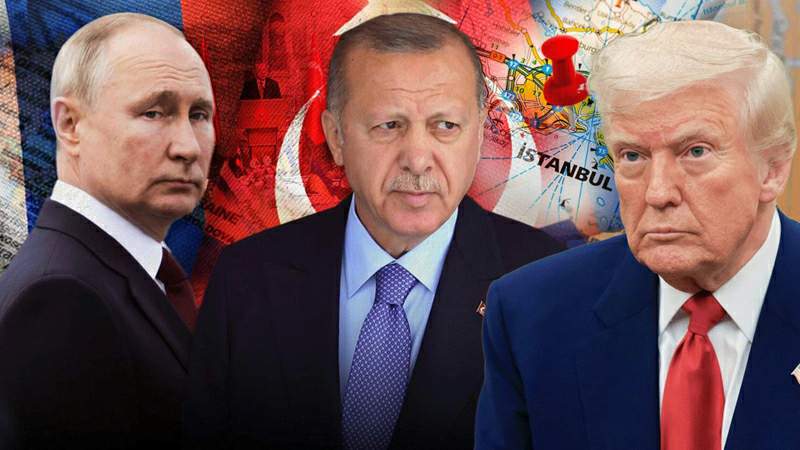In a dramatic shift that could reshape geopolitical dynamics across Eurasia, Turkey is reportedly considering abandoning its Russian-made S-400 missile defense system to re-enter the U.S.-led F-35 Joint Strike Fighter program. According to recent reports, Ankara may even sell its S-400 systems to India—raising questions about Turkey’s relationship with Russia and Putin. Has Erdogan downgraded the ties for a better deal with the West?
Turkey’s acquisition of the S-400 Triumf air defense system from Russia in 2017 triggered a swift and forceful backlash from the United States. Despite being a NATO member, Turkey moved forward with the $2.5 billion deal, prompting the U.S. to expel it from the F-35 fighter program in 2019. The concern: the advanced Russian radar system could be used to study and compromise the stealth profile of the F-35.
Turkish pilots were removed from F-35 training, and key Turkish manufacturers were phased out of the fighter jet’s global supply chain. The episode marked a significant rift between Ankara and Washington, with implications for NATO interoperability and U.S.-Russia strategic competition.
Turkey to Let Go of S-400 as India comes in
Recent reports suggest that Ankara may be preparing to backtrack. Former Turkish State Minister Cavit Çağlar has publicly proposed either storing the S-400 systems or selling them to a third party. This gesture, some believe, is aimed at appeasing Washington and regaining access to the coveted fifth-generation fighter.
Among the most surprising possibilities under consideration is the sale of Turkey’s S-400 systems to India, a country that already operates the Russian platform and faces no major diplomatic fallout for doing so.
India signed a $5.4 billion deal for five S-400 batteries in 2018 and has already received and deployed several units. Despite U.S. warnings under CAATSA (Countering America’s Adversaries Through Sanctions Act), Washington has refrained from sanctioning New Delhi.
India, a long-time strategic partner of Russia, has already acquired multiple S-400 batteries through a $5.4 billion deal signed in 2018. The systems have been deployed to secure airspace around key regions, including its western borders.
Turkey abandons Russia
Turkey Is Reversing Course now, after years of defense isolation and growing friction with both NATO and Russia, Turkey is reassessing its defense calculus. Several key motivations are driving this shift.
Turkey’s exclusion from the F-35 program has left a gap in its airpower modernization plans. Its aging F-16 fleet is increasingly outdated, and domestic alternatives like the TAI Kaan (TF-X) fighter are still years from full deployment.
Turkey has recalibrated its foreign policy in recent years—reducing tensions with Greece, mending ties with Egypt and Israel, and even seeking to normalize relations with the U.S. and EU. Abandoning the S-400 aligns with Ankara’s broader pivot back toward the West.
Russia’s war in Ukraine has altered the strategic landscape. Ankara, which once enjoyed a balancing act between Moscow and Washington, now faces growing pressure to clearly align with NATO. Maintaining Russian weapons systems carries more political and operational costs than before.
Response from West and Russia
The United States and NATO allies have made clear that Turkey’s re-entry into the F-35 program depends on the complete removal or deactivation of its S-400 systems. A sale to a third party like India may be viewed as a “face-saving” solution, provided it comes with guarantees that Turkey no longer operates or maintains the Russian systems.
The US will also not be happy with India coming in to take the S-400’s however India has a far more sovereign policy than Turkey. It is not part of NATO or any Western bloc and has old deep military connections with Russia. Turkey instead is far more cooperative and willing to wean away from Russia for other gains.
For Russia, Turkey’s purchase of the S-400 was a diplomatic coup—signaling divisions within NATO and showcasing Russian defense tech on a global stage. If Ankara now sells those same systems to a U.S. partner, it would represent:
A diplomatic defeat and erosion of Moscow’s influence over Turkey
A possible security risk, as the transfer could expose the S-400’s capabilities or vulnerabilities. Russia must be worried that if the system is sold or given to a Western ally it will greatly compromise its tech. For eg if it lands in the hands of Pakistan, Islamabad is sure to sell the tech to the highest buyer especially its long standing military partner the USA. Russia will be looking to make sure such a situation is averted.
Loss of revenue and prestige, especially as countries weigh the political cost of acquiring Russian weapons post-Ukraine, I’d the tech is compromised the loss of revenue will be huge.
Moscow may now respond by freezing defense ties with Ankara or downgrading cooperation in other areas, such as energy or Syria.
Russia would likely prefer the systems end up with a country like India which has long standing ties with Moscow and will not compromise its tech.
Meanwhile Turkey’s pivot away from the S-400 and back toward the F-35 marks more than a policy reversal—it is a full-scale strategic realignment. Ankara is seeking to repair strained ties with NATO and modernize its air force, even if it means parting with a Russian system. This geopolitical tussle is usre ro ruffle up quite a few nations as Russia looks to offset the damage Erdogan’s moves may end up causing.








